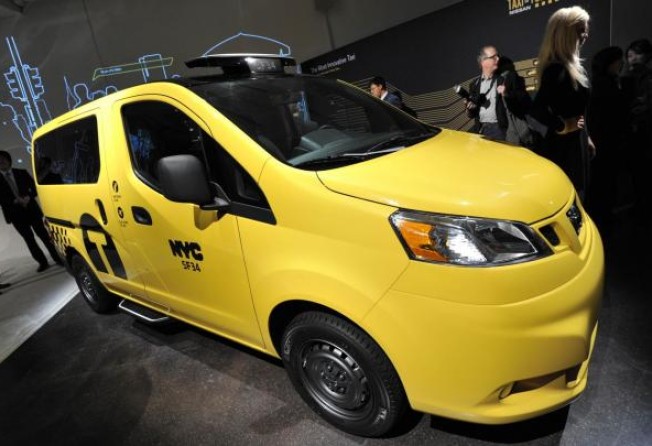Nissan taxis set to return to HK roads
Hong Kong taxi-goers are likely to soon see the return of Nissan cabs 11 years after the carmaker was ousted by Japanese rival Toyota

Nissan model taxis - driven out of Hong Kong by rival car maker Toyota over a decade ago - may reappear on local streets by the end of the year if a bid by the exiled car maker to return to the city succeeds.
Taking a tilt at capturing a slice of a market estimated to be worth HK$7.26 billion, Nissan plans to make a comeback with its liquefied petroleum gas Cedric model - the very car ousted by Toyota when the city's 18,150 taxis were required to switch to LPG from diesel 11 years ago.
But the ultimate and bigger goal, Nissan says, is to gain a foothold in the market in the event that the city's entire taxi fleet is converted to electric-powered models.
And so it also plans to introduce around 50 Nissan Leafs - its best-selling electric vehicle - for taxi trials early next year, according to a person familiar with the plan. That would be followed by a larger trial that could involve 100 eNV200 models - Nissan's next generation of electric cars already set to be used in New York in 2014.
The move comes as officials in charge of Hong Kong's environmental policies say that now is the time to talk about conversions to the city's taxi fleet because a majority of the LPG taxis - first launched in 2001 - will be due for replacement in the next two to three years.
With this debate in mind, Nissan's chief executive Carlos Ghosn is set to meet with Chief Executive Leung Chun-ying on Wednesday to discuss his plans for electric-powered taxis.
According to some taxi operators, Nissan, and its local distributor Honest Motor, Nissan's LPG Cedric - a model now used by taxi drivers in Japan - is not only an improved version of the old model, but dealer support is aimed at minimising repair costs and ensuring efficient replacement of broken components. It was these deficiencies that saw Nissan ousted by Toyota 11 years ago.
A source familiar with Nissan's strategy said, however, that its LPG taxi would only serve as a prelude to its ultimate goal of converting the city's entire taxi fleet into electric cars.
"Electric cars are the future. Electricity is much cheaper than fossil fuel and it has zero emission," the source said, adding that Toyota - a specialist in hybrid vehicles - is unlikely to compete with Nissan on this front since Nissan is already well established in the electric car market.
Toyota, however, is already exploring an even more advanced technology - the hydrogen fuel cell car, which in the future is expected to replace electric cars.
While Nissan may introduce the leaf model as its first electric car in Hong Kong, the company is in fact betting on its eNV200 for success.
The Leaf, which costs about HK$450,000, is at least 13 per cent more expensive than BYD's e6, a model the mainland carmaker planned to introduce to Hong Kong as a taxi. But Nissan says the price will fall after it sets up production on the mainland.
Another problem is the driving range which is only about two-thirds of the e6 model when fully charged.
The eNV200, however, is an electric car tailor-made for the taxi market. In addition to being New York's exclusive taxi model when it goes into mass production in 2014, it will also be used in London and Tokyo.
Meanwhile, BYD's plans to introduce 45 electric taxis in Hong Kong were delayed to next month by an accident involving an e6 on May 26 in which three people were killed.